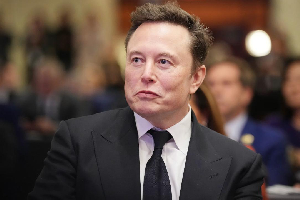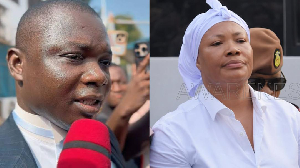Accra, Feb. 14, GNA - About 30 experts have gathered in Accra for a three-day workshop to fashion out approaches and recommendations for preparing military forces to protect civilians from genocide, massacre and systematic human rights abuses.
The experts, most of whom have led peace operations in theatres where civilian populations faced large-scale danger and violence, including genocide, are drawn from the military and civil society in Europe, Asia, Africa and the Americas.
The Henry L. Stimson Centre and the Kofi Annan International Peacekeeping Training Centre (KAIPTC) at Teshie with the support of Department of Foreign Affairs and International Trade of Canada are hosting the experts.
The experts are to explore appropriate concepts of operations, rules of engagement and training requirements for effective civilian protection missions.
The workshop which is on the theme: 93Halting Widespread or Systematic Attacks on Civilians: Military Strategies and Operational Concepts", is a follow-up to a similar one held last September. Defence Minister Kwame Addo-Kufuor who opened the workshop on Wednesday said Ghana's continued commitment to peace support operations on the African continent and beyond for close to five decades attested to its genuine commitment to ensure a peaceful and secure world.
He said Ghana's commitment to the promotion of the principle of the 93Responsibility to Protect" had been reaffirmed in several international fora such as the AU and the UN.
Additionally, Ghana has served on the Committee of 15, which negotiated the AU's official position on UN reform, culminating in the Ezulwini Consensus, which included a clarion call for an endorsement of "Responsibility to Protect" (R2P).
The concept 93Responsibility to Protect" is a project of the International Commission on Intervention and State Sovereignty, that calls on sovereign states to take responsibility in protecting their citizens from avoidable catastrophe such as mass murder and widespread human rights abuses.
However, when the state is unwilling or unable to do so, that responsibility must be borne by the broader community of states. Dr Addo-Kufuor said even though the R2P concept had come to stay, it should be based on a clear mandate, common doctrine and training. He said rules of engagement and an appropriate force structure for the protection of civilians should be clearly spelt out in operationalising the concept.
The Minister noted that the major obstacle to operationalise the R2P was the controversy around state sovereignty.
However, the AU, through its Constitutive Act, had dealt with the issue, with Article 4(h) establishing that, 93The right of the Union to intervene in a member state pursuant to a decision of the Assembly in respect of grave circumstances, namely war crimes, genocide and crimes against humanity".
The article also recognizes the rights of the AU to intervene upon the recommendation of the Peace and Security Council when there is a serious threat to legitimate order for the purpose of restoring peace and stability.
Dr Addo-Kufuor said the rights of innocent civilians had been consistently violated with impunity, while the international community and host governments remained unconcerned.
He said these abuses committed by both state and non-state actors, and the inaction of the international community should be addressed through preventive measures under the R2P.
He suggested that special consideration be given to the role of intergovernmental organizations and associations in operationalizing R2P through policy development, research programmes, training and other relevant issues.
This would complement the role of the military in protecting civilians in times of crisis.
Dr Addo-Kufuor stressed the need for stakeholders to begin to think about obligations to the civilians they protected after they had intervened, because when the military departed prematurely from the theatre, the possibility of abuses recurring became grater. "Appropriate withdrawal strategies ought to be put in place to guarantee the success of the intervention." 14 Feb. 07
General News of Wednesday, 14 February 2007
Source: GNA
Experts fashion ways to protect civilians in conflict areas
Opinions











